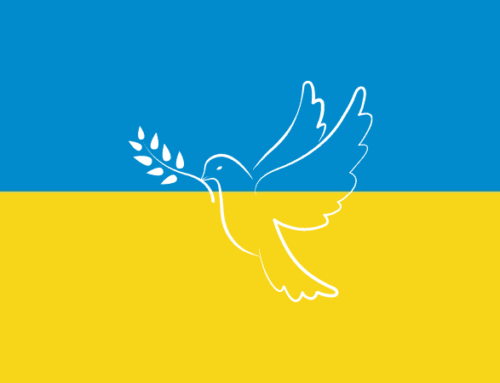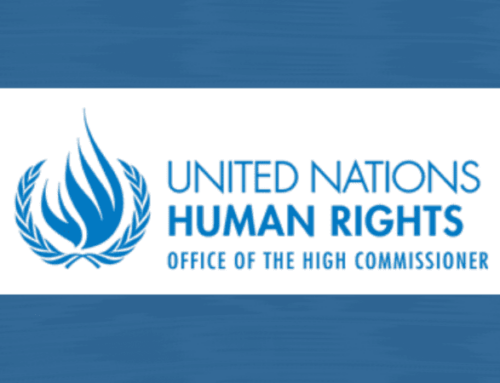Monitoring the case of Alexander Volkov (hearing 04/03/20)

On April 3, 2020, the Kiev Court of Appeal opened the proceedings on the appeal of the defender of the accused Alexander Anatolyevich Volkov, lawyer L. Kalenichenko to the decision of the Borispol district court of the Kiev region of 03/17/2020, by which the accused continued to be held in custody for another 60 days.
Alexander Volkov is charged with criminal offenses under Part 3 of Article 255 (creation of a criminal organization), Part 3 of Article 27 (types of accomplices), Part 3 of Article 146 (illegal imprisonment or kidnapping), Part 3 of Article 27, part two of Article 127 (torture), part 3 of article 27, article 340 (unlawful obstruction of the organization or holding of meetings, rallies, marches and demonstrations), part 3 of article 27, paragraphs. 3, 12, part 2, article 115 (intentional murder of a hostage or a kidnapped person, committed by prior conspiracy by a group of persons) of the Criminal Code of Ukraine.
Volkov A. was detained in July 2017. The prosecutor’s office accuses him of organizing the abductions, as well as of relations with the person who ordered the abduction of activists of the events of 2014 that took place on “Maidan” in Kiev, Yuri Verbitsky and Igor Lutsenko in January 2014.
According to the investigation, the attackers attacked I. Lutsenko and Yu. Verbitsky on January 21, 2014. The latter were taken to a forest in the Kiev region, where they were beaten, and demanded to provide some information related to the Maidan. Subsequently, they were taken to a deserted area and released. As a result of torture, Y. Verbitsky died. Alexander Volkov faces life imprisonment.
This proceeding was selected by the International Society for Human Rights due to the complication of the case of monitoring the observance of the right to a fair trial during the quarantine period.
To begin with, that defender Yemets S.M. objected to the satisfaction of the prosecutor’s request and appealed the court’s decision (as of the time of writing the report, the appeal proceedings had already been opened on the complaint).
Lawyer Kalenichenko L.S. fully supported the objections of her colleague. They believe that the prosecutor’s arguments do not contain a reasonable justification for the stated risks. In addition, the defender noted special circumstances in the country, and the fact that being in custody could bring the accused to critical health, and therefore asked the court to change the measure of restraint to a milder one, namely house arrest. The defendant also objected to the extension of his detention. In addition, he noted that the prosecutor presents facts that are not clear to him.
At the previous session, the prosecutor requested the court to extend the measure of restraint in the form of detention. One of the key circumstances that, in the opinion of the prosecution, proves the validity of the application of an exceptional measure of restraint to A. Volkov in the crimes he is charged with, is the risk that the accused will escape from justice.
In this petition, the prosecutor drew attention to the behavior of the accused A. Volkov, who in his repeated appeals insisted that the risk of his escape, which the prosecution insists on, is unreasonable, since he traveled to the Russian Federation for business purposes, and the city of his departure is completely territorially not associated, in particular, with Moscow. At the same time, when the prosecution provided evidence to the contrary, he ceased to deny this fact. By April 2014, the accused did not make any trips to the Russian Federation. But, the amount of these trips increased immediately after other suspects in the case left the territory of Ukraine.
According to the prosecutor, the risk of hiding from the court in this case is clearly confirmed by the behavior of other accomplices of the alleged crimes.
She believes that there is a need to extend the period of detention, which is related to the fact that any other measure of restraint not related to detention will not be able to ensure the fulfillment of the procedural obligations assigned to him.
Therefore, the prosecutor argues that if the defendants try to escape, it will be impossible to further the trial and implement the general principles of criminal proceedings.
A similar situation was analyzed by the European Court of Human Rights in the case of “Fedorenko v. Russia”. In paragraph 70 of the judgment of September 20, 2011, the Court indicated that “… the conduct of an accomplice in a crime cannot be a decisive factor in assessing the risk of a prisoner escaping. Such an assessment should be based on the personal characteristics of the prisoner,” that is, violations of the regime by other accused cannot worsen the situation or blame others. Including, in relation to the risk of hiding from the investigation and the court (clauses 22-25 “Neumeister v Austria”).
The Court also emphasized that “the existence of a common risk as a result of the organized nature of criminal activity can be taken as a basis for detention at the initial stages of the proceedings. However, the Court cannot agree that the nature of the indicated activities may constitute grounds for decisions on detention at further stages of the proceedings” (paragraph 78 of “Artemov v. Russian Federation”).
It is worth noting that earlier the defense has already asked the court to change the measure of restraint to house arrest several times, but to no avail. The International Society for Human Rights considers it necessary to pay attention to the fact that the prosecutor’s requests for an extension of the measure of restraint in the form of detention for a long time are duplicated and the risks remain the same and are not supported by new evidence.
In accordance with the Code of Criminal Procedure, the term of a determination on detention in custody or on the extension of such detention may not exceed 60 days. However, according to paragraph 3 of Art. 5 of the Convention for the Protection of Human Rights and Fundamental Freedoms, after a certain period of time, the mere existence of reasonable suspicion does not justify deprivation of liberty, the courts must give other reasons for the extension of detention (“Borisenko v. Ukraine”, para. 50).
It can be noted that quite often the trial is delayed, the court constantly extends the measure of restraint and the person is in custody for a long time, which essentially violates his rights. Or, the consideration of the appeal is appointed in violation of the terms when a new court ruling on the measure of restraint has already been adopted, which has already been repeatedly noted in the case of A. Melnik and others, as well as in the case of lawyer A. Chibirdin.
According to the ECtHR case law, detention can only be justified if there is a specific public interest, which, despite the presumption of innocence, prevails over the principle of respect for individual freedom (“Kharchenko v. Ukraine”, para. 79).
Since A. Volkov is accused of committing crimes against participants in protests on the Maidan, as well as of participating in the murder of one of such participants, this case can really cause a public outcry in Ukraine. First of all, this can be confirmed by the fact that it is constantly being covered both by the media and by online broadcasts. Nevertheless, each of the risks that underlie both the petition of the prosecution and, undoubtedly, the basis of the court ruling on the extension of the measure of restraint in the form of detention should be fully justified and supported by the necessary evidence, which excludes the risk of unjustified detention guarded. In addition, the International Society for Human Rights has repeatedly emphasized the fact that according to the CPC, the prosecutor is also obliged to prove to the court that no alternative measure of restraint can prevent the accused from complying with his procedural obligations and prevent the risks for judicial review.
The appeal review of the complaint is scheduled for 11:00 a.m. on May 4, 2020. The International Society for Human Rights will continue to monitor and clarify the details of this proceeding.








Leave A Comment